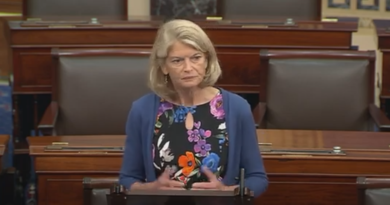2020 drop in business carbon emissions offset by surge in home energy usage – E&T Magazine
Energy Disrupter

The carbon emissions of businesses reduced by around 6 per cent in 2020 due to the pandemic, but extra energy consumption by home workers largely cancelled out this saving, research by Gazprom Energy has concluded.
Personal energy usage was found to have increased by around 37 per cent, largely balancing out business savings of 6 per cent on electricity and 1 per cent on gas, on average in 2020.
Hospitality saw the largest fall in business consumption while manufacturing experienced just a 5 per cent reduction.
The research found that many businesses may have unknowingly experienced an increase in total net energy consumption, when accounting for a remote workforce.
Gazprom Energy is wholly owned by Russian oil producers Gazprom, the third largest carbon emitting firm in the world, according to a study from 2019.
The business energy supplier said it wanted organisations to educate themselves on their true total consumption by taking employees’ working-from-home consumption into account, and has launched an online Net Energy Consumption Calculator to make this process easier.
“The misconception of a drop in total business energy consumption has the potential to distort some organisations’ advancement towards sustainability targets. It may give business leaders a ‘false reading’ of progress if the broader combined consumption picture isn’t considered,” said Daniel Sullivan, head of UK sales at Gazprom Energy.
While different industries faced varied restrictions during the year, all sectors experienced a significant drop in consumption during the first and strictest lockdown period, in April and May 2020.
Consumption of electricity among businesses in the hospitality sector saw the largest fall (25 per cent), with the industry one of the most heavily impacted by restrictions and closures, followed by financial services firms (19 per cent) and the education sector (18 per cent).
Conversely, the manufacturing industry experienced just a 5 per cent reduction in electricity consumption, with the majority of its workforce continuing to operate from the workplace rather than at home.
Changes in gas consumption also followed the same pattern, as restrictions evolved throughout the year.
Manufacturing businesses saw a 9 per cent fall in gas consumption in April and 15 per cent in May, Gazprom Energy said.
The Department for Business, Energy & Industrial Strategy (BEIS) estimates the average household uses 3,731kWh per year. A year-on-year consumption increase of 37 per cent adds a further 1,380kWh per year to each household’s consumption.
During the initial stay at home orders from the government, the Office for National Statistics (ONS) reported 51 per cent of the nation’s workforce was working remotely, with this number even higher in some industries, such as in professional services, where 79 per cent of staff were working remotely. Schools and universities also faced closure to all but the children of key workers.
Once the strictest lockdown measures were eased, the ONS found that almost two thirds (62 per cent) of adult workers resumed travelling to work again by September 2020.
The figure stands at 55 per cent as of April 2021, and is expected to have risen following ‘Freedom Day’ and the end of the majority of restrictions.
“While we have all been taking the necessary health and safety precautions during the pandemic and reducing business travel, it is interesting to look at the consumption of energy by the nation and see where fluctuations happen. A fragmented workforce has resulted in fewer shared appliances and electronics, and an increase in individual activity has increased electricity and gas consumption as a result,” Sullivan said.
Sign up to the E&T News e-mail to get great stories like this delivered to your inbox every day.
Original Source: https://eandt.theiet.org/content/articles/2021/08/2020-reduction-in-business-carbon-emissions-countered-by-extra-home-energy-usage/
















